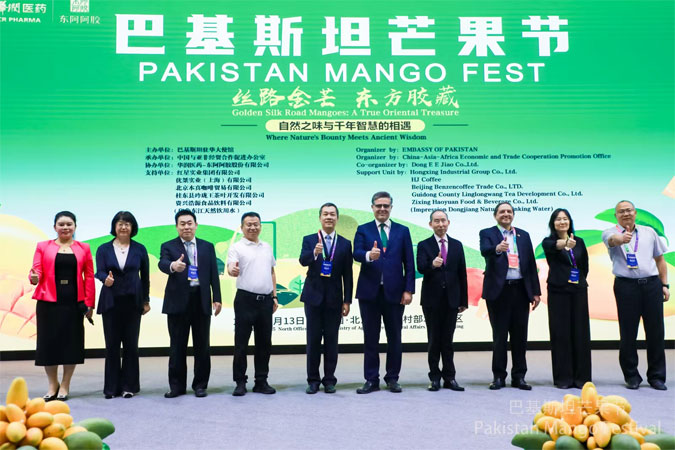China and Pakistan Boost Bio-Healthy Agricultural Research Partnership

Strengthening Agricultural Collaboration Between China and Pakistan
A significant step in strengthening agricultural collaboration between China and Pakistan was made when a delegation led by Prof. Zhang Lixin, Chairman of the Silk Road Bio-Healthy Agriculture Industry Alliance at Northwest A&F University, visited the University of Agriculture Faisalabad (UAF) and the Ayub Agricultural Research Institute (AARI). During this visit, the delegation reached a consensus on establishing a joint research lab and a China-Pakistan Bio-Healthy Agriculture Science and Technology Demonstration Park.
Prof. Zhang emphasized the importance of this initiative, stating that the goal is to share China's advanced agricultural technologies with Pakistani partners to address common food security challenges and improve the lives of farmers. This collaboration aims to create a sustainable framework for agricultural development that benefits both nations.
Prof. Rao Zahid Abbas from the Department of Parasitology at UAF expressed his appreciation for the partnership, highlighting that the establishment of the demonstration park and joint laboratory will serve as a hub for innovation and applied research. He noted that these efforts will directly contribute to Pakistan's food security and agricultural modernization.
Dr. Saddam Hussain from UAF added that this initiative marks a new chapter in academic and research collaboration between the two universities, particularly in the areas of sustainable agriculture and bio-health. The focus on these fields reflects a shared commitment to addressing global agricultural challenges through scientific advancements.
Growth in Sesame Seed Exports
Pakistan's sesame seed exports to China have seen a remarkable increase in the first half of 2025. The volume of exports has surged by 300% compared to the same period in 2024, positioning Pakistan as the fourth-largest sesame supplier to China. This growth is attributed to improved market access and increased demand for Pakistani agricultural products in China.
Prof. Zhang highlighted that more Pakistani farmers are now cultivating sesame, reflecting growing confidence and opportunities in the sector. The surge in exports indicates a positive shift in trade dynamics and underscores the potential for further expansion in this area.
To capitalize on this momentum, Pakistan aims to strengthen its sesame trade with China by focusing on enhancing seed quality, investing in value-added processing, and expanding its presence in the Chinese e-commerce market. These strategies are expected to boost the competitiveness of Pakistani sesame in the Chinese market.
Development of the Demonstration Farm
Construction of a bio-healthy sesame order-based demonstration farm is currently underway at the China-Pakistan Bio-Healthy Agriculture Overseas Technology Demonstration Park, jointly established by the two countries in Sahiwal, Punjab Province. This farm leverages the joint oilseed laboratory established by China and Pakistan, which serves as a key platform for technological exchange and innovation.
Northwest A&F University has introduced high-quality Chinese sesame varieties and supporting production technologies to the local area. This initiative not only enhances the productivity of sesame cultivation but also promotes the adoption of advanced agricultural practices among local farmers.
The collaboration between China and Pakistan in the agricultural sector is a testament to the growing synergy between the two nations. Through joint research, technology transfer, and strategic partnerships, both countries are working towards a future where food security and sustainable agriculture are prioritized.
As the projects continue to develop, the impact of these initiatives is expected to be felt across various sectors, including farming, trade, and rural development. The success of these collaborations could serve as a model for other countries seeking to enhance their agricultural capabilities through international partnerships.

Comments
Post a Comment